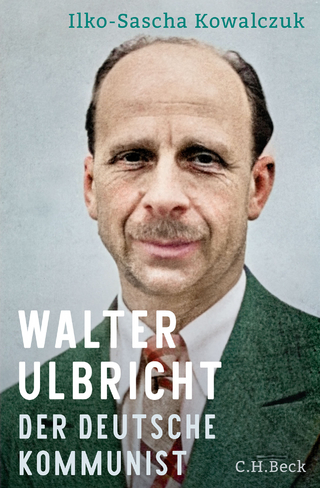
European Conquest and the Rights of Indigenous Peoples
The Moral Backwardness of International Society
Seiten
2003
Cambridge University Press (Verlag)
978-0-521-82471-2 (ISBN)
Cambridge University Press (Verlag)
978-0-521-82471-2 (ISBN)
Paul Keal argues for the recognition of indigenous peoples as 'peoples' with the right of self-determination in constitutional and international law. Questioning the moral legitimacy of international society, and examining notions of collective guilt and responsibility, Keal's accessible study provides an important insight into contemporary international society.
Paul Keal examines the historical role of international law and political theory in justifying the dispossession of indigenous peoples as part of the expansion of international society. He argues that, paradoxically, law and political theory can now underpin the recovery of indigenous rights. At the heart of contemporary struggles is the core right of self-determination, and Keal argues for recognition of indigenous peoples as 'peoples' with the right of self-determination in constitutional and international law, and for adoption of the Draft Declaration on the Rights of Indigenous Peoples by the General Assembly. He asks whether the theory of international society can accommodate indigenous peoples and considers the political arrangements needed for states to satisfy indigenous claims. The book also questions the moral legitimacy of international society and examines notions of collective guilt and responsibility.
Paul Keal examines the historical role of international law and political theory in justifying the dispossession of indigenous peoples as part of the expansion of international society. He argues that, paradoxically, law and political theory can now underpin the recovery of indigenous rights. At the heart of contemporary struggles is the core right of self-determination, and Keal argues for recognition of indigenous peoples as 'peoples' with the right of self-determination in constitutional and international law, and for adoption of the Draft Declaration on the Rights of Indigenous Peoples by the General Assembly. He asks whether the theory of international society can accommodate indigenous peoples and considers the political arrangements needed for states to satisfy indigenous claims. The book also questions the moral legitimacy of international society and examines notions of collective guilt and responsibility.
Paul Keal is a Fellow of the Department of International Relations at the Research School of Pacific and Asian Studies, The Australian National University. He is the author of Unspoken Rules and Super Power Dominance (1983), editor of Ethics and Foreign Policy (1992), and with Andrew Mack, co-editor of Security and Arms Control in the North Pacific (1988).
Acknowledgements; Introduction; 1. Bringing 'peoples' into international society; 2. Wild 'men' and other tales; 3. Dispossession and the purposes of international law; 4. Recovering rights: land, self-determination and sovereignty; 5. The political and moral legacy of conquest; 6. Dealing with difference; Conclusion; Appendix; Select bibliography; Index.
| Erscheint lt. Verlag | 28.8.2003 |
|---|---|
| Reihe/Serie | Cambridge Studies in International Relations |
| Verlagsort | Cambridge |
| Sprache | englisch |
| Maße | 160 x 235 mm |
| Gewicht | 588 g |
| Themenwelt | Geschichte ► Allgemeine Geschichte ► Zeitgeschichte |
| Recht / Steuern ► EU / Internationales Recht | |
| Sozialwissenschaften ► Politik / Verwaltung ► Europäische / Internationale Politik | |
| Sozialwissenschaften ► Politik / Verwaltung ► Politische Theorie | |
| Sozialwissenschaften ► Soziologie ► Spezielle Soziologien | |
| ISBN-10 | 0-521-82471-0 / 0521824710 |
| ISBN-13 | 978-0-521-82471-2 / 9780521824712 |
| Zustand | Neuware |
| Haben Sie eine Frage zum Produkt? |
Mehr entdecken
aus dem Bereich
aus dem Bereich
Gewalt, Umwelt, Identität, Methode
Buch | Softcover (2024)
Spector Books OHG (Verlag)
36,00 €


